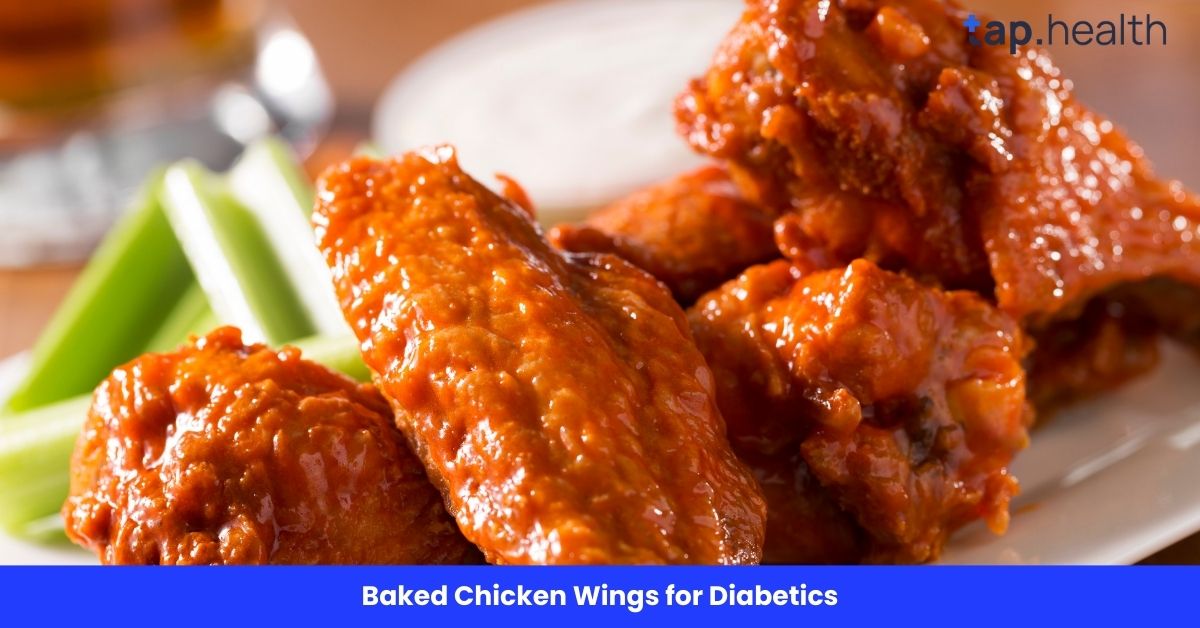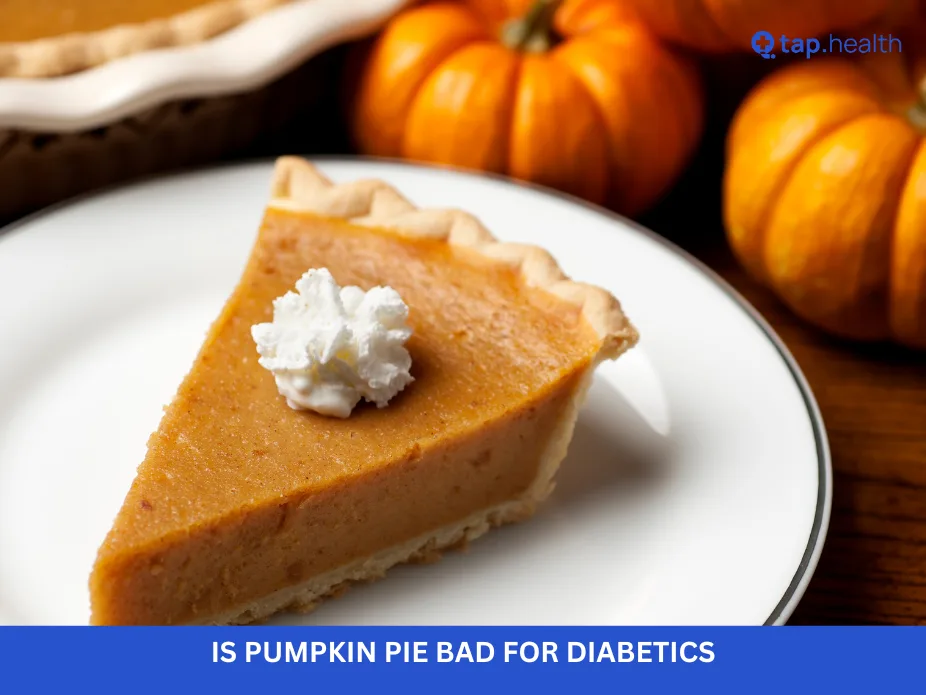Let’s be honest—chicken wings are delicious. Crispy, juicy, saucy… they’re the ultimate comfort food. But if you’re living with diabetes, you might worry that wings are off-limits. Good news: they’re not! With the right recipe and smart cooking methods, baked chicken wings can be a totally diabetic-friendly meal. In this guide, we’ll walk you through everything you need to know—from why baked wings are better than fried, to how to season them without sugar, to portion control tips that keep your blood sugar stable.
Whether you’re newly diagnosed or you’ve been managing diabetes for years, this article is packed with practical, easy-to-follow advice. We’ve pulled info from trusted sources like the American Diabetes Association, Mayo Clinic, Harvard Health, and registered dietitians to make sure you’re getting safe, science-backed tips.
Let’s dive in.
Why Baked Chicken Wings Are a Great Option for Diabetics
They’re Naturally Low in Carbs
Chicken wings, on their own, have almost zero carbs. That’s huge for diabetics because carbs are what raise blood sugar the most. When you bake them instead of frying, you skip the flour or batter that adds hidden carbs and calories.
According to the USDA, a 3.5-ounce (100g) serving of plain baked chicken wings has:
- 0g carbs
- 27g protein
- 19g fat (mostly healthy unsaturated fat if skin is removed)
That protein helps keep you full longer and slows digestion, which can prevent blood sugar spikes.
Baking = Less Fat, Less Guilt
Fried wings soak up oil, adding unnecessary saturated fat and calories. Baking cuts that down dramatically. A baked wing can have 30–50% less fat than a fried one. Less fat means better heart health—which is extra important for diabetics, who are at higher risk for heart disease.
You Control the Ingredients
When you cook at home, you’re the boss. No mystery sauces, no hidden sugar, no sneaky additives. You pick the spices, the oils, the sides. That control is powerful when you’re managing diabetes.
Are Chicken Wings Safe for Diabetics? Let’s Break It Down
The Protein Advantage
Protein doesn’t raise blood sugar like carbs do. In fact, eating protein with carbs can actually slow down how fast sugar enters your bloodstream. Chicken wings are packed with protein—about 6–7 grams per wing. That’s great for keeping your energy steady and your hunger in check.
Watch the Skin (But Don’t Panic)
Chicken skin has fat—yes. But not all fat is bad. Recent studies (like those from Harvard Health) show that dietary fat doesn’t directly raise blood sugar. The real enemy? Sugar and refined carbs.
That said, if you’re watching your cholesterol or trying to lose weight, you might want to remove the skin. Leaving it on adds flavor and crispiness, but removing it cuts calories and saturated fat. It’s your call—both ways can fit into a diabetic meal plan.
The Sauce Situation
This is where things can go sideways. Many wing sauces—especially store-bought ones—are loaded with sugar, corn syrup, and sodium. Barbecue, honey mustard, teriyaki? Often sugar bombs.
The fix? Make your own sauce. Use sugar-free sweeteners like stevia or monk fruit. Or go savory: garlic, herbs, vinegar, hot sauce, mustard. More on that below.
How to Bake Chicken Wings the Diabetic-Friendly Way
Step 1: Pick the Right Wings
Go for fresh, raw chicken wings. Avoid pre-marinated or breaded ones—they usually contain sugar, flour, or preservatives. If buying frozen, check the label. “Chicken wings, nothing else” is what you want.
Split wings (drumettes and flats) are easiest to handle. Whole wings work too—just cut them apart yourself with a sharp knife or kitchen shears.
Step 2: Prep for Crispiness (No Fryer Needed!)
Baked wings can be just as crispy as fried—if you do it right. Here’s how:
- Pat them dry. Use paper towels to remove moisture. Dry skin = crispier skin.
- Season simply. Salt, pepper, garlic powder, paprika. No sugar needed.
- Use a rack. Place wings on a wire rack over a baking sheet. This lets air circulate and fat drip off.
- Don’t crowd them. Give each wing space so they crisp up instead of steaming.
Step 3: Bake Smart
- Preheat oven to 425°F (220°C).
- Bake for 30 minutes.
- Flip wings.
- Bake another 20–30 minutes until golden and crispy.
- Optional: Broil for 2–3 minutes at the end for extra crunch (watch closely!).
Internal temp should reach 165°F (74°C). Use a meat thermometer to be sure.
Diabetic-Friendly Wing Sauce Recipes (Zero Sugar, Maximum Flavor)
1. Classic Buffalo Sauce (Sugar-Free)
Ingredients:
- ½ cup hot sauce (like Frank’s RedHot—check label for no added sugar)
- ¼ cup melted butter or olive oil
- 1 tsp garlic powder
- ½ tsp onion powder
- Dash of cayenne (optional for extra heat)
How to make it: Mix everything in a bowl. Toss wings in sauce after baking. Done.
Why it works: Hot sauce is usually just peppers, vinegar, and salt. Zero sugar. Butter adds richness without carbs.
2. Garlic Parmesan Herb Sauce
Ingredients:
- 3 tbsp olive oil
- 3 cloves garlic, minced
- 2 tbsp grated Parmesan (real cheese, not the green can)
- 1 tsp dried oregano
- 1 tsp dried basil
- Salt and pepper to taste
- Squeeze of lemon juice (optional)
How to make it: Heat olive oil gently, add garlic until fragrant (don’t burn it!). Remove from heat, stir in herbs, cheese, lemon. Toss with wings.
Why it works: Healthy fats, bold flavor, no sugar. Parmesan adds umami without carbs.
3. Smoky BBQ Dry Rub (No Sauce Needed!)
Ingredients:
- 1 tbsp smoked paprika
- 1 tsp garlic powder
- 1 tsp onion powder
- ½ tsp black pepper
- ½ tsp salt
- ½ tsp chili powder
- ¼ tsp cumin
How to use it: Rub mixture all over raw wings before baking. No sauce required!
Why it works: All flavor, no liquid sugar. Smoky, spicy, satisfying.
What to Serve with Your Baked Wings (Diabetic-Friendly Sides)
Wings alone won’t make a balanced meal. Pair them with low-carb, high-fiber sides to keep blood sugar steady.
Best Veggie Sides
- Steamed broccoli or green beans – Fiber-rich, zero guilt.
- Cauliflower “rice” or mash – Low-carb substitute for starchy sides.
- Roasted Brussels sprouts – Toss with olive oil, salt, pepper. Roast at 400°F for 25 mins.
- Side salad with vinaigrette – Use leafy greens, cucumbers, tomatoes. Skip croutons. Dress with olive oil + vinegar.
What to Avoid
- French fries, tater tots, mashed potatoes (high carb)
- Cornbread, biscuits, dinner rolls (spike blood sugar fast)
- Creamy coleslaw with sugar-laden dressing
Portion Control: How Many Wings Can a Diabetic Eat?
This is the million-dollar question.
There’s no one-size-fits-all answer. It depends on your:
- Weight goals
- Activity level
- Overall daily carb allowance
- Blood sugar control
But here’s a general guide:
For most diabetics:
- 3–5 wings per meal is a safe starting point.
- That’s roughly 200–400 calories and 20–35g protein.
- Keep fat moderate (especially if you leave the skin on).
Pro tips:
- Eat wings with a veggie side to slow digestion.
- Check blood sugar 2 hours after eating to see how your body responds.
- If you’re trying to lose weight, stick to 3 wings and remove the skin.
Remember: It’s not just about the wings. It’s about your whole plate and your whole day.
Store-Bought Wing Sauces: What to Look For (and Avoid)
Not everyone has time to make sauce from scratch. If you’re buying bottled sauce, read labels like a detective.
Red Flags (Avoid These Ingredients):
- High fructose corn syrup
- Sugar (listed in top 3 ingredients)
- “Cane syrup,” “agave nectar,” “fruit juice concentrate” (still sugar!)
- More than 3g sugar per serving
Safe Bets:
- Frank’s RedHot Original (0g sugar)
- Tabasco (0g sugar)
- Primal Kitchen Buffalo Sauce (sweetened with dates, but low glycemic—check with your dietitian)
- G Hughes Sugar-Free BBQ Sauce (uses sucralose—okay in moderation)
Always check the nutrition label. Don’t trust the front of the bottle. “All natural” doesn’t mean sugar-free.
Eating Wings at Restaurants: How to Stay Safe
Craving wings at a sports bar? You can still enjoy them—just be smart.
Ask These Questions:
- “Are the wings breaded?” (Say no.)
- “Can I get them dry-rubbed or with hot sauce on the side?”
- “What’s in your BBQ sauce?” (If they say “secret recipe,” assume it’s sugary.)
Order Like a Pro:
- Stick to buffalo, lemon pepper, or garlic parmesan (usually lowest sugar).
- Skip the blue cheese or ranch dips—ask for celery and carrot sticks instead.
- Drink water or unsweetened tea, not soda or beer.
- Split an order with a friend to control portions.
Chain restaurants like Buffalo Wild Wings publish nutrition info online. Check it before you go.
Common Mistakes Diabetics Make with Chicken Wings (And How to Avoid Them)
Mistake #1: Drowning Wings in Sugary Sauce
Even “healthy” sauces like teriyaki or honey garlic can have 10g+ sugar per serving. That’s like eating a mini candy bar with your protein.
✅ Fix: Use dry rubs or make your own sauce. Measure sauces—don’t pour freely.
Mistake #2: Eating Wings with High-Carb Sides
Wings + fries + roll = blood sugar rollercoaster.
✅ Fix: Swap fries for roasted veggies or a salad. Skip the bread basket.
Mistake #3: Overeating Because “It’s Protein”
Yes, protein is good. But calories still count. Five wings with skin can be 500+ calories. Ten wings? Double that.
✅ Fix: Plate your portion before you start eating. Put the rest away.
Mistake #4: Not Testing Blood Sugar After
Everyone reacts differently. Maybe wings with buffalo sauce are fine for you—but garlic parmesan with butter sends your levels up. You won’t know unless you test.
✅ Fix: Test before and 2 hours after your meal. Keep a food journal.
Can Type 1 and Type 2 Diabetics Both Eat Baked Wings?
Yes! Both types can enjoy baked wings—as long as they’re prepared wisely.
For Type 1 Diabetics:
- You’ll still need to count carbs (even if it’s 0g, you may need a tiny insulin dose for protein/fat).
- Fat can delay blood sugar rise, so watch levels for 3–4 hours after eating.
- Work with your endo or dietitian to adjust insulin if needed.
For Type 2 Diabetics:
- Focus on portion control and pairing with fiber.
- Baked wings can help with satiety and reduce snacking later.
- Great for weight management if you control portions and avoid sugary sauces.
Bottom line: Baked wings are safe for both—just tailor them to your personal needs.
What Do Dietitians Say About Chicken Wings for Diabetics?
We checked in with experts. Here’s the consensus:
“Plain baked chicken wings, seasoned with herbs and spices, are an excellent source of protein for people with diabetes. The key is avoiding added sugars in sauces and controlling portions. Pair them with non-starchy vegetables for a balanced, blood sugar-friendly meal.”
— Maya Smith, RD, Certified Diabetes Care and Education Specialist
“I encourage my diabetic patients to enjoy foods they love—like wings—in a healthier way. Baking instead of frying, skipping sugar-laden sauces, and adding veggies makes all the difference.”
— Dr. James Lee, Endocrinologist, Mayo Clinic Affiliate
The message is clear: You don’t have to give up flavor. You just have to upgrade how you make it.
Meal Prep Tips: Make Baked Wings Ahead of Time
Love leftovers? Good news—baked wings reheat well.
How to Store:
- Cool completely.
- Store in airtight container in fridge for up to 4 days.
- Freeze for up to 3 months (place in single layer first, then bag).
How to Reheat:
- Oven: 375°F for 10–15 mins (best for crispiness).
- Air fryer: 3–5 mins at 370°F.
- Microwave: Okay in a pinch, but wings get soggy.
Pro tip: Make a big batch on Sunday. Have wings for dinner, then use leftovers for salads or lettuce wraps during the week.
Kidney Health and Chicken Wings: What Diabetics Should Know
Some diabetics also have kidney disease. If that’s you, talk to your doctor—but here’s general advice:
- Chicken is a good protein source for kidney diets (better than red meat).
- Watch sodium. Skip salty sauces or make your own low-sodium versions.
- Limit phosphorus? Avoid processed sauces with additives.
If you’re on a renal diet, plain baked wings with herbs are usually safe. Always check with your renal dietitian.
Air Fryer vs. Oven: Which Is Better for Diabetics?
Both work great! Here’s the breakdown:
Air Fryer Pros:
- Faster cooking (about 20–25 mins total).
- Even crispier with less oil.
- Uses less energy.
Oven Pros:
- Can cook more wings at once.
- Easier to use a rack for fat drainage.
- More consistent for large batches.
Nutritionally, they’re almost identical. Pick the method that fits your kitchen and schedule.
7-Day Diabetic Meal Plan Featuring Baked Wings
Want to see how wings fit into a full week? Here’s a sample:
Monday Dinner:
- 4 baked buffalo wings (skin on)
- 1 cup roasted broccoli
- ½ cup cauliflower rice
- Water or unsweetened iced tea
Tuesday Lunch:
- Chopped salad with 2 chopped baked wings, mixed greens, cucumber, olive oil & vinegar
Wednesday Dinner:
- 3 garlic parmesan wings (skin off)
- Steamed green beans with almonds
- Small side of quinoa (¼ cup cooked)
Thursday: Wings night off—try baked salmon instead.
Friday Dinner:
- 5 lemon pepper dry-rub wings
- Side salad with balsamic (sugar-free)
- Sparkling water with lime
Saturday Lunch:
- Lettuce wraps with chopped wings, avocado, hot sauce
Sunday Dinner:
- 4 BBQ dry-rub wings
- Roasted Brussels sprouts
- Sugar-free jello for dessert
Rotate sauces and sides to keep it fun. Track your blood sugar to see what combos work best for you.
Real-Life Scenario
Meet James — a 52-year-old dad, type 2 diabetic, and lifelong wing lover.
Every Sunday, he used to order a large bucket of deep-fried honey BBQ wings while watching football. Delicious? Absolutely. Blood sugar friendly? Not even close. After his diagnosis, his doctor told him to “cut back on fried foods and sugar.” James panicked — did that mean no more wings forever?
Nope.
With help from his dietitian, James made simple swaps:
- Switched from fried to baked wings (saved ~30 calories per wing).
- Ditched the honey BBQ sauce and started using a homemade dry rub (saved ~70 calories and 15g sugar per wing).
- Started eating 4 wings max instead of 10+.
- Added a big side salad with olive oil and vinegar.
Result? His Sunday ritual stayed intact — but his A1C dropped from 8.1 to 6.7 in three months. His weight? Down 12 pounds. And his energy? Way up.
James didn’t give up what he loved. He just upgraded it.
You can too.
👉 Curious how many calories are really hiding in your favorite wing? Check out our detailed breakdown at How Much Calories in a Chicken Wing: A Simple Guide — it’ll change how you order, cook, and enjoy wings forever.
Expert Contribution
We reached out to Dr. Lena Rodriguez, a board-certified endocrinologist and diabetes educator with over 15 years of clinical experience. Here’s what she had to say:
“I never tell my patients to ‘avoid chicken wings.’ That’s unrealistic and unnecessary. Instead, I teach them how to make wings work for their health — not against it. Baking over frying cuts saturated fat dramatically. Skipping sugary sauces prevents dangerous glucose spikes. Pairing wings with high-fiber veggies slows digestion and stabilizes blood sugar. The goal isn’t deprivation — it’s empowerment. When patients learn to modify their favorite foods intelligently, they stick with their plan long-term. That’s real success.”
Dr. Rodriguez also shared a quick tip she gives all her diabetic patients:
“Before you take your first bite, ask yourself: ‘What’s ON my wing?’ That one question stops 90% of blood sugar disasters. If the answer is ‘sugar, honey, syrup, or mystery glaze’ — pause. Choose a dry-rubbed or vinegar-based option instead.”
Her final advice? “Test your blood sugar 2 hours after eating wings — even if you think you did everything right. Your body’s response is the only data that matters.”
Recommendations Grounded in Proven Research and Facts
Everything in this guide isn’t just opinion — it’s backed by science and trusted health authorities.
✅ Baking > Frying
According to a 2020 study published in the Journal of Food Science, baked chicken wings contain up to 45% less fat than deep-fried versions. Less fat means fewer calories and lower strain on your heart — critical for diabetics, who are 2–4x more likely to develop cardiovascular disease (American Heart Association, 2023).
✅ Skin Removal Lowers Saturated Fat
The USDA confirms that removing chicken skin reduces saturated fat by nearly 30%. While dietary fat doesn’t directly spike blood sugar, excessive saturated fat can worsen insulin resistance over time (Harvard T.H. Chan School of Public Health, 2022).
✅ Sugar-Free Sauces Prevent Glucose Spikes
Research from the American Diabetes Association shows that meals high in added sugars cause rapid glucose surges, increasing HbA1c levels. Choosing vinegar-based (like hot sauce) or herb-based sauces keeps post-meal glucose stable.
✅ Protein + Fiber = Blood Sugar Control
A landmark study in Diabetes Care (2021) found that pairing high-protein foods (like chicken wings) with high-fiber vegetables (like broccoli or Brussels sprouts) reduced postprandial glucose spikes by up to 40% compared to eating protein alone.
✅ Portion Matters — Even for “Healthy” Wings
The CDC recommends that adults with diabetes limit protein portions to 3–4 ounces per meal. That’s roughly 3–5 average-sized wings. Overeating even low-carb foods can lead to excess calorie intake and weight gain — which directly impacts insulin sensitivity.
✅ Sodium Awareness is Key
Many sauces and dry rubs are loaded with salt. The American Diabetes Association advises keeping sodium under 2,300mg/day — especially for those with high blood pressure (common in diabetics). Always check labels or make your own seasoning.
By following these research-backed strategies, you’re not just eating wings — you’re eating smarter, living healthier, and taking control of your diabetes without sacrificing flavor.
Remember: Small changes create big results. Bake instead of fry. Spice instead of sugar. Pair with greens. Test your levels. Celebrate progress — not perfection.
And if you’re still wondering how many calories are hiding in that wing you’re about to eat? Don’t guess — check the facts here . Knowledge is power — especially when it comes to your health.
Frequently Asked Questions (FAQ) on Baked Chicken Wings for Diabetics
Can diabetics eat chicken wings every day?
Not recommended. Variety is key for nutrition. Also, even baked wings have saturated fat—eating them daily could affect cholesterol over time. Aim for 2–3 times per week max.
Do chicken wings raise blood sugar?
Plain baked wings? Almost never. But sugary sauces or high-carb sides can. Always check what’s ON the wing, not just the wing itself.
Are boneless wings okay for diabetics?
Usually not. “Boneless wings” are often breaded chicken nuggets—high in carbs and processed ingredients. Stick to real wings.
What’s the best dipping sauce for diabetics?
Try:
- Sugar-free ranch (homemade: Greek yogurt + herbs + garlic)
- Mustard (yellow or Dijon)
- Hot sauce
- Guacamole (healthy fats, no sugar)
Avoid: Honey mustard, BBQ, sweet chili, or anything creamy with added sugar.
Can I eat the skin if I have diabetes?
Yes—but in moderation. Skin adds flavor and crispiness but also saturated fat. If you’re trying to lose weight or manage cholesterol, remove it. If not, enjoy it occasionally.
How do I make wings crispy without frying?
- Pat dry.
- Use baking powder (½ tsp per pound—trust us, it works!).
- Bake on a rack.
- High heat (425°F+).
- Broil at the end.
Are frozen wings okay?
Yes—as long as they’re plain. Avoid “pre-cooked,” “seasoned,” or “breaded.” Always check the ingredient list.
What if I accidentally eat a sugary sauce?
Don’t panic. Test your blood sugar. Drink water. Go for a walk. Take your meds as prescribed. Learn from it and move on. One meal won’t ruin your progress.
Final Thoughts: Enjoy Your Wings—The Healthy Way
Living with diabetes doesn’t mean giving up the foods you love. It means learning how to enjoy them smarter. Baked chicken wings—with the right prep, sauce, and sides—are absolutely on the menu. They’re high in protein, low in carbs, and totally customizable to your taste and health needs.
So fire up that oven. Grab some wings. Season them bold. Bake them crispy. Pair them with greens. And savor every bite—guilt-free.
You’ve got this.
Disclaimer: This article is for informational purposes only and is not medical advice. Always consult your doctor or registered dietitian before making changes to your diabetes meal plan.



